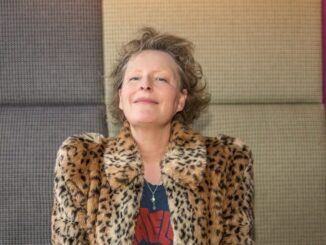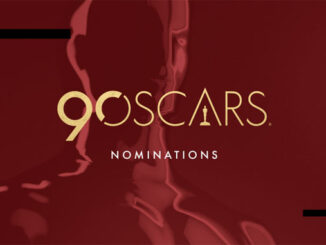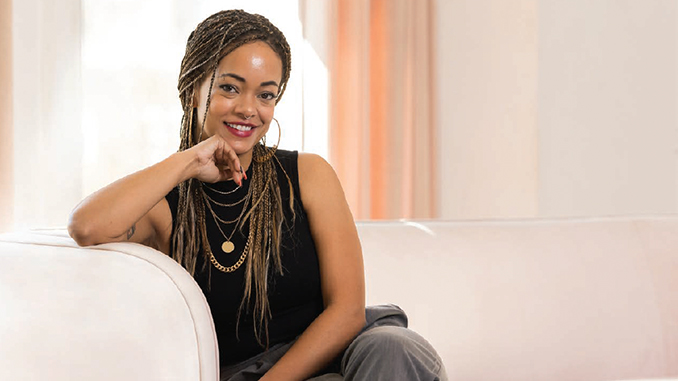
By Kristin Marguerite Doidge
Emmy Award-winning picture editor Stephanie Filo, ACE, has found herself at the center of several key moments in history over the past decade, from building awareness during the Sierra Leone, West African Ebola virus disease outbreak to her work on President Obama’s White House Task Force’s “It’s On Us” campaign to combat campus sexual assault in 2014. But she recently made history herself when she received three Primetime Emmy Award nominations for three different series at the same time – becoming the first picture editor and the first Black editor to do so. (The 2023 Primetime Emmys were delayed due to last year’s WGA and SAG-AFTRA strikes; the ceremony is currently scheduled to be televised on Jan. 15, 2024 on Fox.)
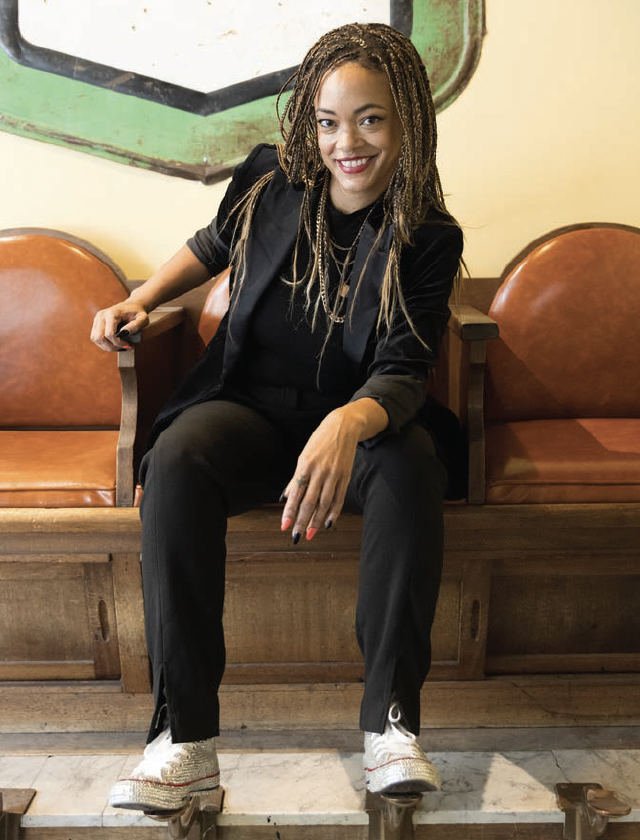
In 2021, she and fellow editors Daysha Broadway, ACE, and Jessica Hernández, ACE, won the Emmy Award for Outstanding Picture Editing for Variety Programming for their work on HBO’s “A Black Lady Sketch Show,” the first all-Women of Color editing team to take home the award. In 2022, she made history again as a member of the first all-Black editing team to be nominated for and win both an Emmy and an ACE Eddie for the sketch comedy, which she shared with Bradinn French, ACE, Taylor Mason, ACE, and S. Robyn Wilson, ACE.
This year, Filo is nominated for Outstanding Picture Editing for Variety Programming for her work on “History of the World, Part II” (alongside Angel Gamboa Bryant, Daniel Flesher, and George Mandl, ACE) and “A Black Lady Sketch Show” (shared with Malinda Zehner Guerra and Taylor Mason, ACE), as well as Outstanding Picture Editing for a Limited or Anthology Series or Movie for “Dahmer – Monster: The Jeffrey Dahmer Story.” This past weekend, Filo and her fellow editors on “Black Lady Sketch Show” took home the prizes.
It’s Filo’s “impeccable eye for visuals, tone, comedy and pacing” that showrunner Robin Thede appreciates most about Filo’s editing work on “A Black Lady Sketch Show,” which premiered in 2019. “She’s a once-in-a-lifetime talent,” Thede said. “Not only that, but she is incredibly collaborative, masterfully malleable in impossible situations, and invested in keeping the door open for many other Black women editors to follow in her illustrious footsteps.”
“I can’t say enough about her – and ‘A Black Lady Sketch Show’ would never have received all the acclaim it did without her herculean skill,” Thede added.
Perhaps ironically, it was Filo’s graceful nature rather than her herculean skill that initially brought her to Los Angeles. Originally from Sierra Leone, West Africa, she grew up in Denver, Colorado. Her first love was dance. “I lived and breathed dance,” she said. “I danced six hours a day–ballet, tap, jazz, hip-hop, everything. As different as it seems from editing, I feel like dance uses the same part of your brain because you are still thinking about pacing, music and timing, and telling a story visually.”
In middle school and high school, she started to tinker with the family’s home movie camera and VHS tapes, trying to “splice things together, not realizing that was editing at all.”
After earning a coveted spot as a Denver Broncos cheerleader, Filo secured an agent and moved to L.A. to pursue work in film and television. But a chance encounter led to her first professional editing job: night-time assistant editor on a documentary with editor Benjamin Meyer. “I was still dancing, but I knew I wanted to do film and TV in some capacity, and I think I just knocked on the right door,” she said. “After we finished the project, he said, ‘I hope you keep doing [work in] post. I hope you stay in this.’”
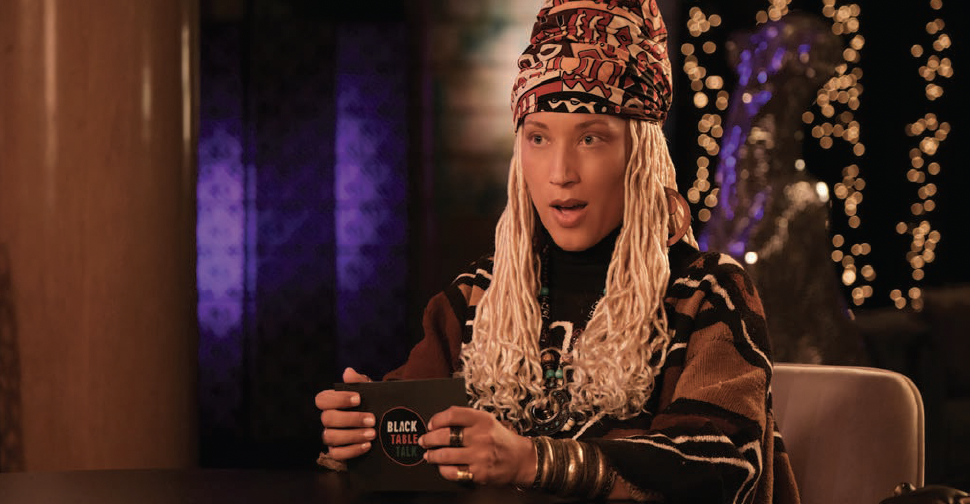
Meyer’s referral led to two years of work with Bill Macomber at Fancy Film Post-Production in Silverlake, who helped her land her first big break in 2008: editing a documentary about legendary comedians Mel Brooks and Carl Reiner, called “Excavating the 2000 Year Old Man” (2012). “I think at that point I had been assistant editing for long enough, and Bill had guided me so much that he said, ‘I think you’re ready.’”
Her natural talent for editing documentary, drama, and comedy alike has served her well over the years – and has also helped her land supportive mentors in other genres, such as Elísabet Ronaldsdóttir, ACE, who cut acclaimed action features “John Wick” (2014) and “Deadpool 2” (2018).
“I’ve looked up to her so much for so many years, and I met her several years ago just via social media,” Filo said. “I saw her name pop up on Twitter and messaged her, and she immediately just kind of took me under her wing. She’s been such a supportive force for me over the years. She’s just such a warm person who’s generous with her time, and I love seeing diverse voices telling these stories.”
In Thede, she discovered a new mentor who gave her a chance to expand her editing chops in sketch comedy. “Robin said to me, ‘I think you have a voice, you should really try to test it out. See if you like it.’ And here I am,” Filo said. She also credits the vision of several other gifted showrunners and directors she’s been privileged to work with in creating space for conversations and ideas about what might be possible when shaping the story. “Something I love the most about editing is that no matter what stage we’re in, every day you learn something new,” Filo added. “I feel like I have had so many mentors over time and still keep meeting people who I’ve learned so much from.”
A passion for activism
Filo’s desire to continue to learn has also translated into powerful projects as an activist. The daughter of a human rights and environmental attorney, she’s felt compelled to use her editing skills in her off time to help bring more awareness to important causes she cares about. She has produced and edited a number of notable social action campaigns and documentaries, primarily focused on the rights of women and girls worldwide, including her work with the United Nations (UN), International Labour Organization, and The White House.
She won a Peabody Award for her work on “Surviving R. Kelly” in 2019, and earned her first news/documentary Emmy Award for an episode of the “Mental State” news documentary series in 2020 alongside Nzinga Blake, Chris Reece, and Janelle Bass, making Filo and Blake the first Sierra Leoneans to win an Emmy.
Filo currently serves on the board for Girls Empowerment Sierra Leone, a social impact and feminist-based organization for Sierra Leonean girls ages 11 to 16, and she’s one of the co-founders of End Ebola Now, an organization created in 2014 to spread accurate information and awareness about the Ebola virus and its impact through artistic community activism.
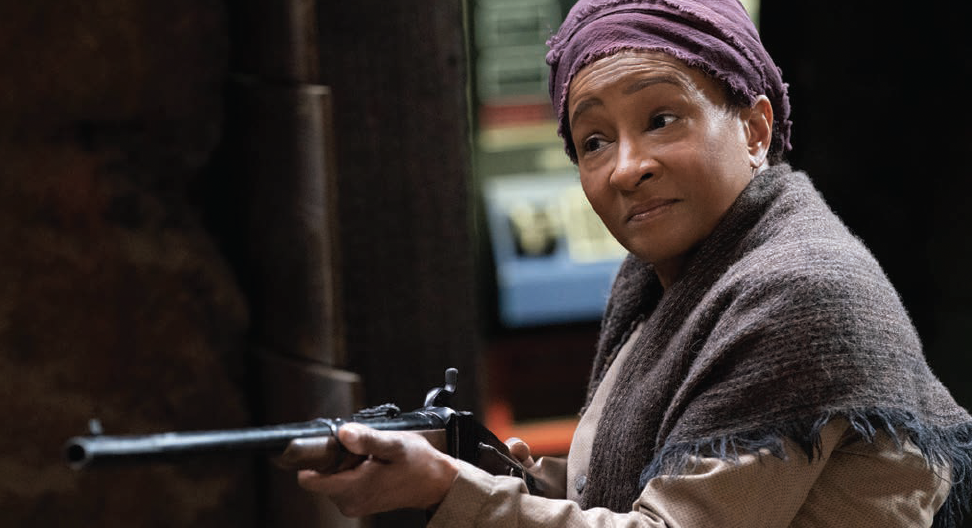
By October 2014, Ebola was spreading at a rate of five new cases an hour in Sierra Leone, according to figures from the nonprofit Save the Children. Given the high illiteracy rate in the area, Filo and her colleagues were challenged to find creative ways to help provide vital information to Sierra Leoneans about the deadly disease. After consulting with physicians from the UN, World Health Organization (WHO), and Doctors Without Borders, they made a point to independently produce, edit and help distribute public service announcements (PSA) in 26 different local languages using both audio and video, and launched a dance challenge to help raise funds for the only fully-functioning hospital treating patients at the time.
“That was a very intense couple of years because I was also working at the time,” Filo said. “I would work and then go home and work on this stuff, and then go back to work the next day.”
As challenging as those long days were, Filo said her charitable work also helped inform new ways of approaching storytelling as an editor – and today, she’s more open than ever to whatever comes next – as long as it changes her life. “I just want to work on cool projects with cool people,” she said. “There’s a movie that I worked on last year that just premiered called ‘We Grown Now,’ and the director [Minhal Baig] and I were both able to kind of quantify it in a way by saying, ‘whatever project we work on, it has to change our life in some way.’ It should help you feel like a better person or a better storyteller, but you have to feel connected to the story. You have to feel connected to the characters.”
But Filo’s connection to her own editing community has been and will continue to be the most life-changing, she said.
“Something that inspires me so much about our editing community and about all the other women editors I know is we all kind of lean on each other. We all seek advice from each other,” she said. “If things are going to change, we have to change it ourselves in a way. I always try to make a point that if I need an assistant editor, I’ll ask: is it a woman? Is it a woman of color? Is it another Black woman? I think it’s these small things that we can do so people will value what we bring to the table.”
Filo said that sentiment applies to diversifying the kinds of projects editors are invited to do, too. “I hope that maybe these Emmy nominations are proof that we can cut different things,” she said. “Sometimes the best things come out of people who are not used to having opportunities in that genre. Diverse people can bring new and different perspectives.”



